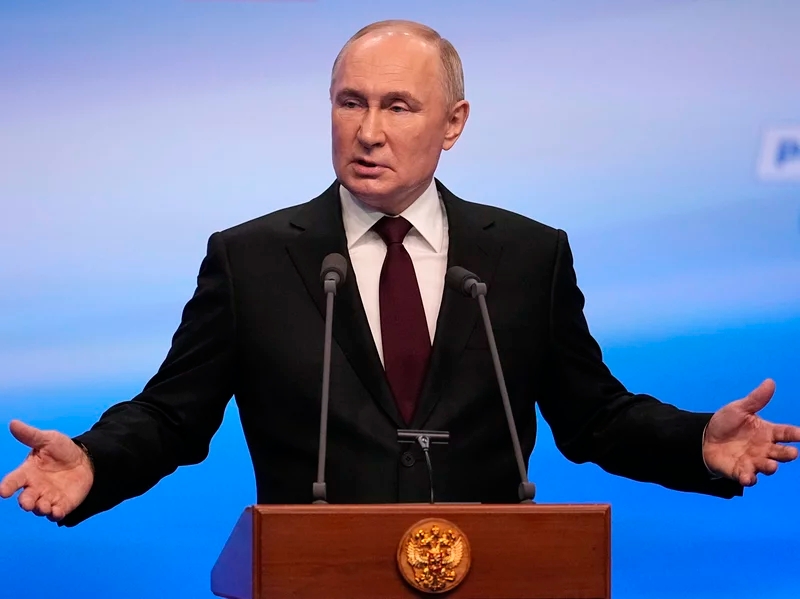
By Anders Lorenzen
Vladimir Putin will be the President of Russia until at least 2030, and having changed the election rules he is also cleared to run for another six-year term which would take him up until 2036.
An exit poll on Sunday (17th of March) evening declared what most international analysts and commentators had predicted would be a landslide victory for the controversial president as an exit poll run by Russian state media predicted an election result of 87%. The lack of surprise came as Putin had forcefully removed any credible opposition to him with the largest threat to the president’s reign being the charismatic Alexei Navalny, who was first imprisoned by the Russian government, and was recently mystically found dead in prison.
While the government and the Russian state media were keen to present this election as a fair election, it was clear to international observers there was nothing fair about it. Despite the government making it an illegal offence not to vote in the election, the turnout is estimated to have been very low.
Climate change
His long reign in power started in 2000 and was only interrupted when he due to term limits swapped places with Dmitry Medvedev where Putin between 2008 – 2012 officially served as Prime Minister, but in reality, was acting as the president.
During his reign, Putin has been an ally of the Russian, oil, gas and mining industries and has been playing down the threats of climate change, denied access to critical climate data to organisations working on this and historically arrested 30 Greenpeace activists peacefully protesting Arctic oil drilling in international waters.
Despite its population of 144 million people, Russia is the fourth-largest emitter in the world, largely due to the oil and gas industry in Russia being one of the largest in the world and little environmental safeguarding on its extraction processes.
His climate targets have been labelled as largely ineffective and unambitious and the emissions in the country keep on rising.
Russia’s target of achieving net zero by 2060 has been labelled as critically insufficient by the Climate Action Tracker (CAT) stating: ‘Russia’s efforts to tackle climate change remain very low. Its few relevant policies are unambitious or have an unclear expected effect on emissions. Russia’s existing policies indicate no real commitment to curb emissions. The CAT estimates that Russia can easily reach its updated NDC target from November 2020 with adopted policies and should therefore submit a stronger 2030 target.’
Furthermore, the country has no plan to reign in its fossil fuel industry and opposed the idea at COP28 that fossil fuels should be phased out. Nor have they any credible policies in place to invest in renewable energy technologies such as solar and wind power.
This is all despite the reality that Russia is not immune to the impacts of climate change. Russia does not allow international scientists into the country, even though it is tricky to get any environmental and energy data from Russia due to international monitoring efforts such as satellites, scientific studies in bordering countries, the Arctic, and international waters – Russia is at the forefront of climate impacts and doing very little to counter it.
The outlook for Putin to lead Russia until at least 2030 is not only a scary thought for international observers in terms of basic human and democratic rights but also for the plight of climate change. With Russia being the world’s largest landmass, if the Russian government does not radically up its efforts in tackling climate change which would include seriously starting to scale back its fossil fuel activities this could perhaps offer the biggest obstacle in addressing global climate change.
Categories: analysis, climate change, International Politics, Russia